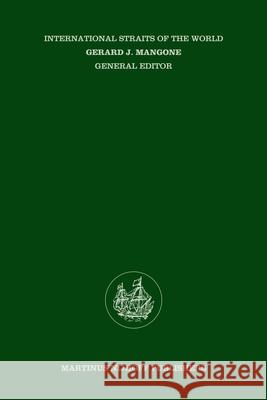The Legal Regime of the Turkish Straits » książka
The Legal Regime of the Turkish Straits
ISBN-13: 9789041119049 / Angielski / Twarda / 2002 / 208 str.
This is the thirteenth book in the series International Straits of the World initiated and edited at the Graduate College of Marine Studies of the University of Delaware. In 1987 the ninth book in this series dealt with the Turkish Straits. Since then, however, the rapid developments of the law of the sea, especially with regard to coastal state jurisdiction and the status of international straits, has called for a new analysis of the heavily-trafficked, narrow waterway that links the Mediterranean Sea with the Black Sea. The 1982 UN Convention on the Law of the Sea provided a special regime for straits used for international navigation. ...Nothing in this part of the convention, however, affected the legal regime of the Turkish Straits. The convention exempted those straits in which passage was regulated in whole or in part by long-standing international conventions specifically related to that strait. The Montreux Convention of 1936, still in force, was designed to regulate passage through the Dardanelles, the Sea of Marmara, and the Bosporus - or the Turkish Straits. Dr. Unlu has addressed a key international policy question, namely, in the light of the evolving law of the sea and the special role of the International Maritime Organization, should the 1936 Montreux Convention be amended or denounced - or changed by some unilateral act of Turkey. ...] In sum, can the convention be sustained as it is, modified by unilateral action, denounced by the parties, or its provisions changed in some other way by international action? The author has even explored the possibility of making the straits a particularly sensitive sea area, allowing the coastal state to take expanded jurisdiction to prevent marine pollution. Dr. Unlu has done a great service to scholarship on the legal regime of the Turkish Straits. She has left her readers with policy options that will be useful in trying to reconcile the use of a strait not covered by the 1982 Law of the Sea Convention with the exigencies of modern international law.











